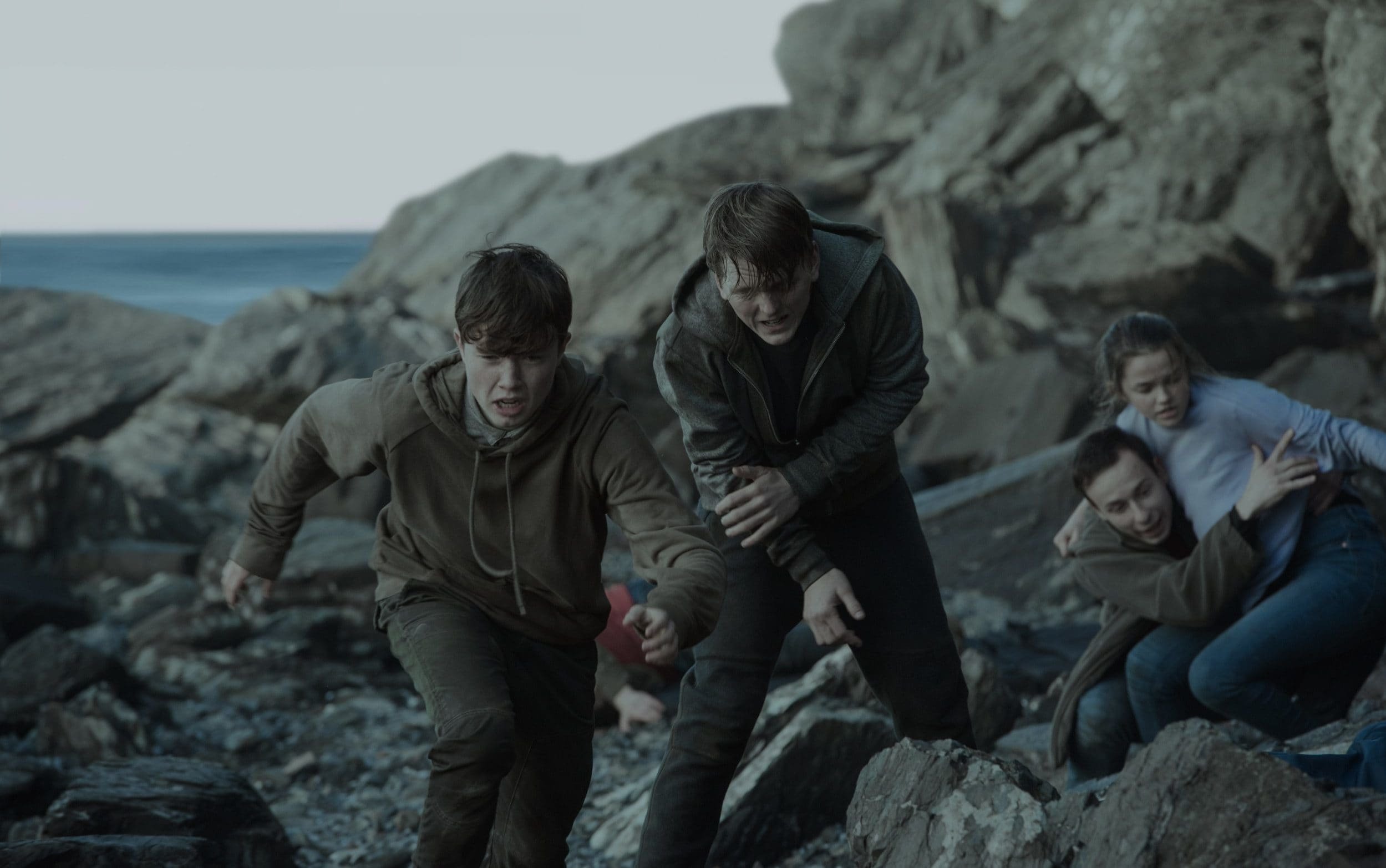22nd of July is one of the worst days in Norway’s history. 77 people were killed, 69 of which were on an island summer camp for children. Paul Greengrass, no stranger to movies about terrorists, would seem like the perfect director for July 22. Greengrass does succeed in making the story captivating, however he uses an approach that might not be right for the material in question.
Much like his approach to United 93, Greengrass gives us a day’s account from the perspective of several people. Prime Minister Jens Stoltenberg (Ola G. Furuseth) is planning his political agenda for the day, including a visit to a youth camp on the island of Utoya. On that island, we meet some of the young campers, including Viljar (Jonas Strand Gravli) and his younger brother Torje (Isak Bakli Aglen), excited to meet other young friends and maybe boyfriends/girlfriends. And sadly but finally, we meet the man who horribly brings them together, Anders Breivik (Anders Danielsen), a right wing radical seeking to hurt these kids because their parents political beliefs are “ruining” the country he “loves.” After the attack, Breivik enlists a lawyer, Geir Lippestad (Jon Oigarden), to defend him, which Lippestad reluctantly takes because the law requires him to do so.
I think Paul Greengrass was hoping this movie would turn out like United 93, which found a perfect balance of tension and emotion with just the right amount of external scope to give a full picture of how brave those passengers were, standing up to the Islamic terrorists. With the 22 July, I think Greengrass’s scope is too large, specifically on the time scale and character choices. After the introductory 30 minute attack, we are given months of time and multiple stories to follow, including the political fallout of his terrorist attack on the Prime Minister, Viljar and Torje’s mother’s mayoral campaign, and the home life of Geir Lippestad, all outside the main thread of the repercussions of Breivik’s actions. When the story is spread thin like that, you only have a few scenes to develop your characters. Unfortunately, when you’re spread thin like that, which character do you think is the most compelling to follow? Like most people, I wound up perking up when Anders Breivik’s scenes came up again, wanting to understand the mind of a monster. This means truly compelling arcs like Geir Lippestad’s and Jens Stoltenberg’s are consumed by this awful man and his manifesto, robbing the audience of some other interesting, great characters, much more worthy of a film than Breivik.
Thankfully, Greengrass does keep us invested enough to keep watching the 22 July. The opening 30 minutes is just horrific to watch, similar to the way Patriot’s Day unfolds, but much, MUCH more horrible. Those scenes are tense with pure terror, watching these poor innocent kids get gunned down by a cruel awful man who clearly planned this out. In the panic we see how composed and caring Viljar’s and Torje’s parents are, logically tracking down their sons during the chaos, and being generally supportive and empathetic to Viljar during his moments of need. After Viljar’s wounds are stabilized, we see the inner strength Viljar has, as he digs deep to recover enough to face his fears in the courtroom, and do it as a strong person. Despite not getting enough screentime, Geir Lippestad is worth every minute of screen time he gets. I would have liked Greengrass to have make Breivik relatively faceless and more a consuming presence so we can see how Lippestad’s defense of him affected him, his wife, and his 5 kids, and if his defense of a Nazi bled into his defense of his client. In any event, Lippestad comes off as a moral ethical man, who can clearly separate his work from his beliefs, getting a great send off at the end of the trial. The big winner of 22 July is the Norwegian people, who clearly have a moral compass pointed toward justice, but also possess a steely resolve in the face of intolerable cruelty.
I don’t know if you could tell, but I resisted calling Anders Breivik evil in this review. Evil to me implies an othering: separating Breivik from the rest of humanity, similar to the way Breivik felt about immigrants to his country. Despite the general issues I have with Paul Greengrass’s dispassionate direction of the 22nd July, one good thing this approach does is make Anders Breivik look extremely caclulating as a villain, instead of like an inhuman creature. That way, 22 July presents Breivik as the flip side of the human coin, making all the wrong choices, with the heroes of the story making the correct ones. It’s important to remember how important choices are in creating a villain or a hero, and I’m happy for Norway just how many more people made the correct choices in the aftermath of one man who made the wrong ones.

